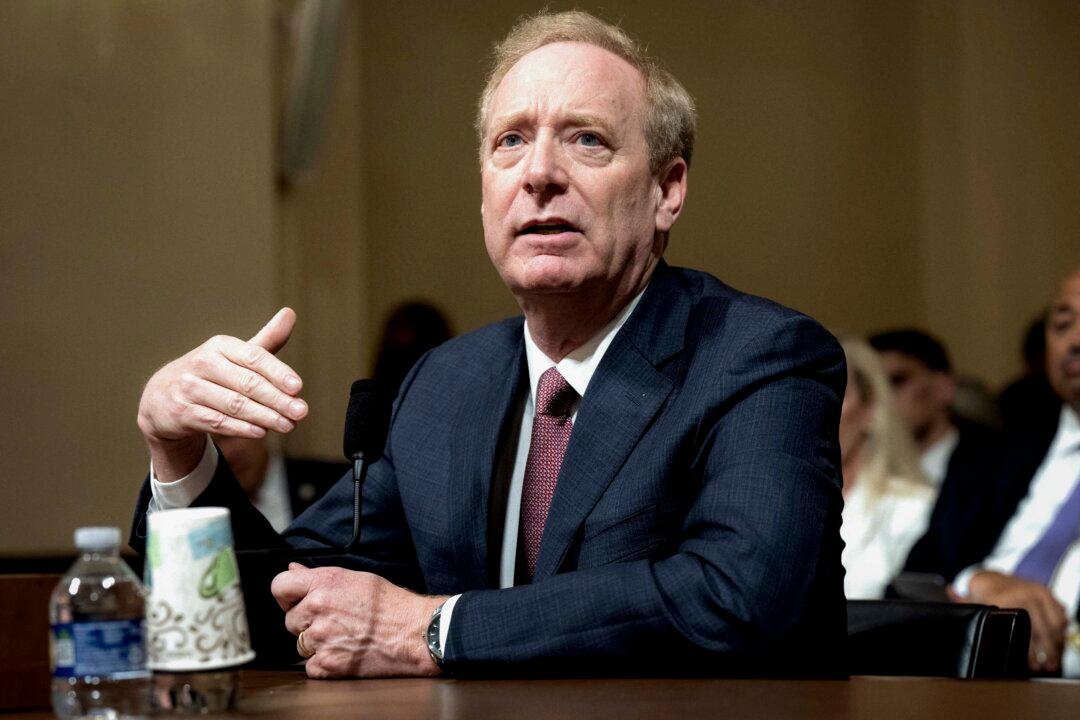Lawmakers on the House Homeland Security Committee questioned Microsoft President Brad Smith on June 13 over security “shortfalls” that allowed China-linked hackers to breach the software company’s systems last year.
The incident, which Microsoft attributed to the China-based hacking group Storm-0558, compromised the emails of more than 500 people, including the secretary of commerce.





